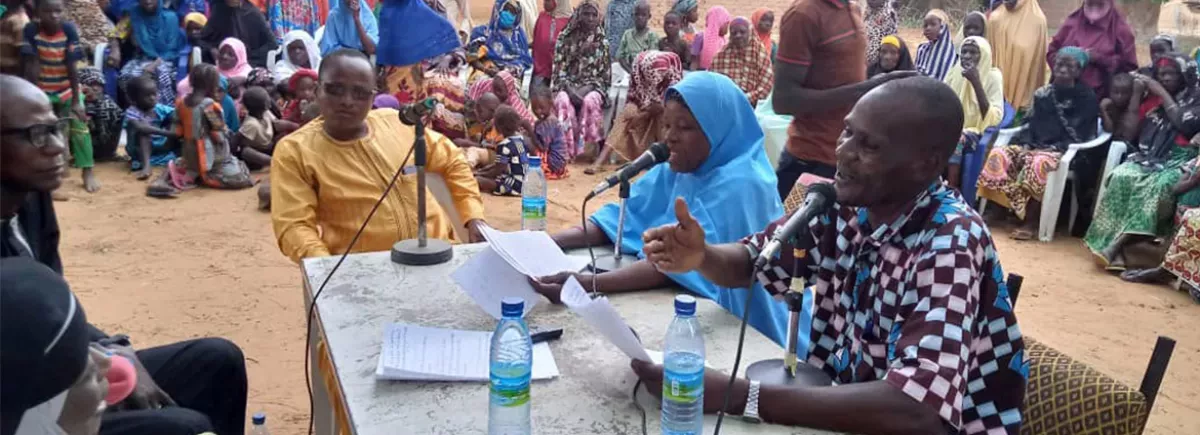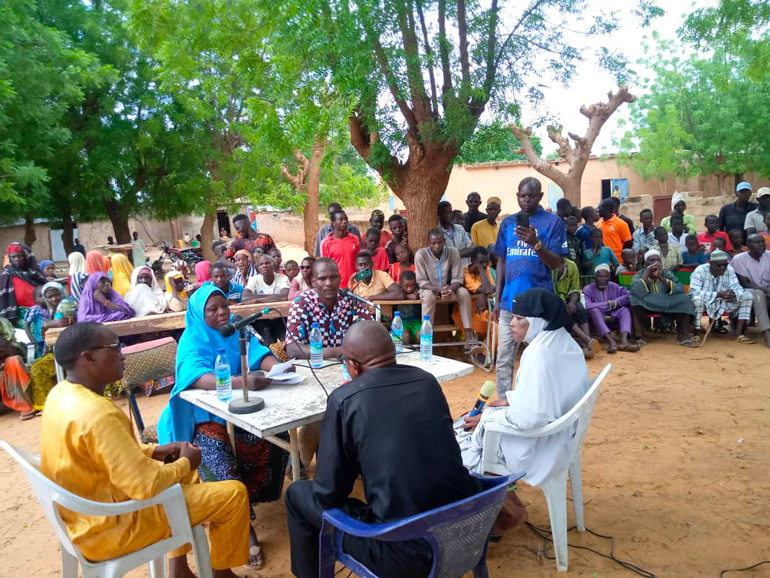
Public talk shows to resolve or prevent conflict
Related project
MediaSahelAround 100 radio show hosts from Mali, Burkina Faso and Niger have already benefited from training sessions on public talk shows offered by MediaSahel. In August, Niger’s Mourna radio outlet tried out this format for the first time.
“We were already producing public participation programmes before,” explains Dayabou Dan Sakou, a community radio host at Mourna de Dolle/B’konni. “They were run in the simplest way possible, with the public answering questions from the host. Now, the talk shows are different, and this is a first for our radio station.”
The talk shows are programmes for the general public enabling discussions about citizen issues and local governance. They aim to find solutions, and to prevent or settle conflicts in areas of insecurity.
“The general public talk show format comprises a magazine, a sketch, a vox pop, interviews and an interactive section. It’s the whole package,” explains Dayabou. “This type of programme requires lots of financial, human and material resources as well as good preparation,” he continues.
A good format for radio stations
For one hour, the host held the public in suspense on the subject of “keeping young girls in school in Dollé/B’Konni”. The issue surrounding young girls’ education is a major concern for the Nigerien community, especially in rural areas.
“We invited people from the education system, local authorities, young people and parents into the studio. The programme has been well received. The audience has insisted that the radio station continue with this type of programming which covers the news and raises awareness among the entire community,” explains Dayabou.
For him, this type of programme is a good format for radio stations, as it enables people from all social strata (young people, men, women) to actively participate in creating the programme. It is an effective tool that helps to change mindsets and behaviours with the aim of encouraging young people to be responsible. Unfortunately, the financial resources are still lacking to guarantee regular productions.
Supported and assisted throughout the production process by a trainer, Ali Abdou, the programme, completed on 21 August, was broadcast live on Facebook to reach as many people as possible.



